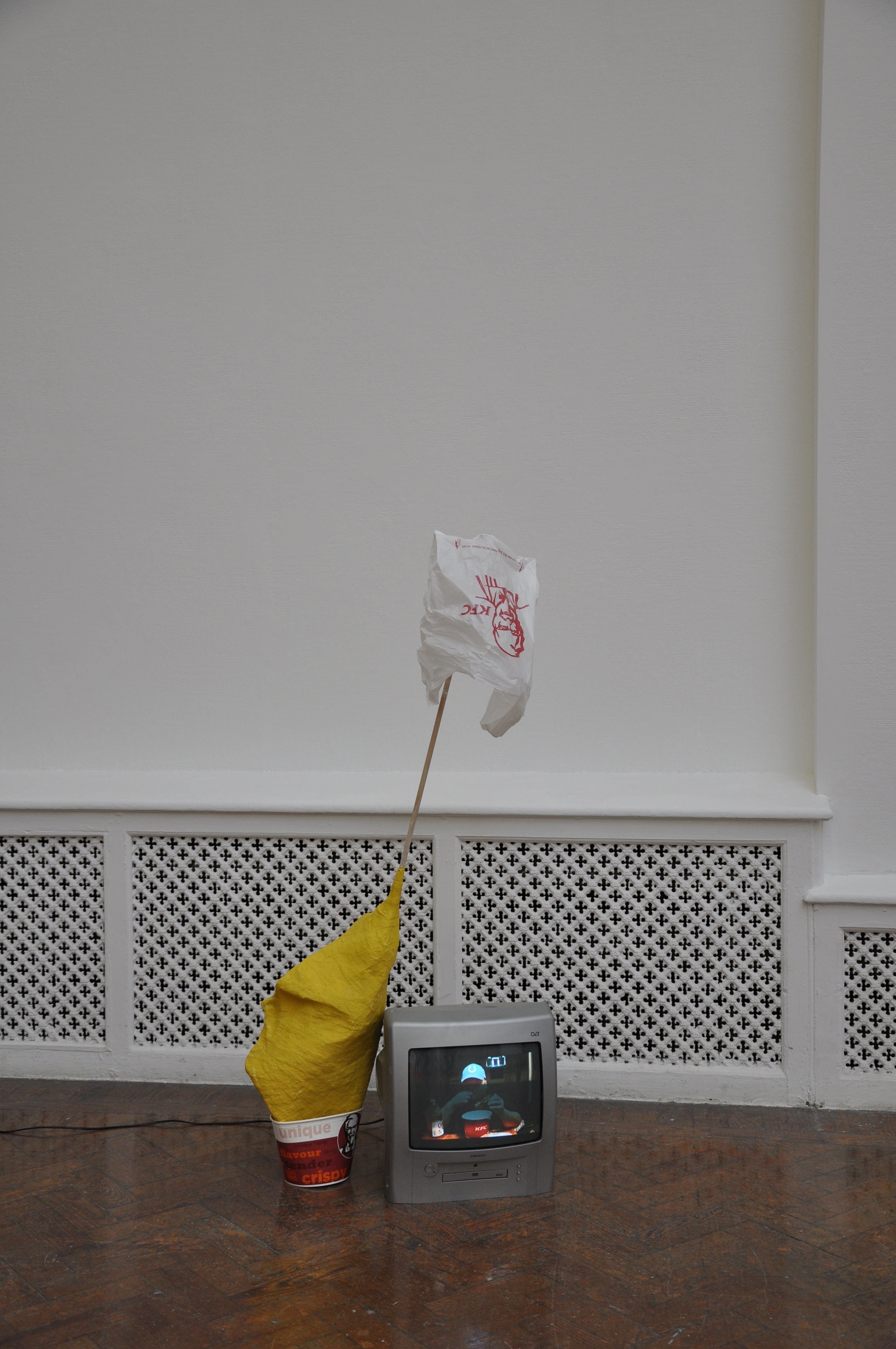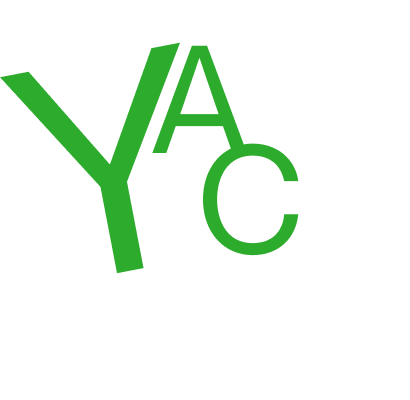Calum Crawford
Interview by David McLeavy
Published August 2013
-
Calum Crawford uses various found footage and imagery collected in an organic way from various sources as a starting point. He attempts to translate through a kind of sculptural dress up, combining various components either found or constructed, a romantic but sometimes dark vision of popular culture.
-
Your work has a strong connection to advertising, seemingly from the previous couple of decades, along with strong hip‐hop and popular music origins (eg. The Cascada soundtrack to your video Everytime We Touch, 2013). How did this come about and has it been something you have worked with throughout the past few years?
Advertising is something I've been interested in from a young age, I'm a huge American sports fan and they have about 4 breaks in play per quarter or period just for adverts and I used to be just as fascinated if not more with the American advertisements than the games at some points and the fascination has just kinda stuck with me and managed to make its way more evidently into my practice within the past 3 years.
In terms of the music I think it’s just always been a passion of mine from the gritty UK underground gang related rap to guilty pleasures such as The Wanted (Ask anyone whose shared a studio with me and they will tell you how broad and bizarre my music taste is). Its something that has always had a strong influence on my practice. I also can't go anywhere without my iPod and if I do and forget my headphones I usually become depressed.
Everytime We Touch, digital video, 2013
There is quite a lot of humour in your work. Tell me a little more about that. Is that a conscious thing or is it something that comes with the subject matter you re‐ appropriate?
I don't really ever set out with the intention for something to be funny; it just seems to always creep into my practice without me noticing. I think its something that just comes with the territories of my practice.
What are you aiming to comment on by using this specific method of digital collage?
Its more a kind of attempt to romanticise certain elements of youth culture and social structures that exist today by adopting a method that is not only resourceful in terms of making, but something that is present in the day to day production and release of information.
That’s interesting as I can see some comparisons with your method of romanticising certain time periods with the way a DJ may select and mix tracks from different genres. Would you agree with this and is being a DJ something you have ever considered?
Yes I strongly agree with this and as for djing before I moved away from home I used to put on parties when I was like 16 at some dodgy club that would allow me and all my under age friends and serve them alcohol while me and a group of friends used to mix and get the vibes flowing.
I also used to DJ on an underground radio show, although I've kinda let my mixing slip these past 3/4 years. Its something I'm looking at beginning to try incorporate more into my practice with a new monthly podcast which will be available to download on my website. I showcased the first of these at the Ceri Hand Summer fete as part of |BMW|, a curatorial project by Kevin Hunt & Sam Venables.
You mentioned earlier that your method of digital/video collage was not only effective conceptually but also economically. Is this a problem you have faced a lot and how does this impact on your more sculptural work?
Yeah it can be a problem but I try not let money effect anything I do and if I want to do something sculptural on a larger scale then I'll save up and cut down on my outgoings on other items to see it through.
I mean most of the money I make from my job is returned into my practice in one way or another, but it certainly has an impact in terms of the scale of some of the work, and I think I’ve just come to realise over time there’s certain things I won't be able to do just due to money reasons, but like I said I try not to let this effect my practice.
|BMW| podcast, Ceri Hand Gallery, London (The podcast is available by texting C769K followed by your email address to 60777)
What seems interesting about your work is how all your personal interests such as specific music tastes and a real fascination with advertisements and certain lifestyles is evident within your work. How important is it for you that your practice and your life are so closely linked?
Yeah it’s really important to me, I find it a lot easier to work with the things that I know or have an understanding of. My practice is treated as a research tool or an ongoing study into these things I have a fascination with or interest in.
Since you graduated last June/July have you experienced any differences in the way you operate as an artist in the professional realm compared to that of an artist in an institution?
I don't know whether I’ve been out of university long enough to realise any major changes to the way in which I operate other than I seem to be doing a lot more admin rather than making work, its kind of something which isn't told before you graduate and my schedule of going to the studio everyday while I was in University has changed into going to the studio as and when I can around work.
I think its this unrealistic dream that you have as an art student that you will have a studio and not work for the rest of your life and just be free to carry on how you were while in art school, but I soon realised that this was only ever to be a dream and I quite quickly had to find a job to be able to support myself and my studio to have any hope of continuing my practice. Sorry that this is kind of depressing for those who are reading this and still studying with that dream. But I think I'm quite lucky that a lot of my work is based on the laptop so my studio can travel around with me 95 per cent of the time.
You also have previously teamed up with some other artists whilst you were based in Manchester to put on a few more curatorial projects. Can you talk a little more about that side to your practice and how that may or may not influence your own individual work?
Well the curatorial project Hotel came about when me Joe Fletcher Orr and Guy Broadhurst saw the potential to bring new and exciting artists to empty spaces in Manchester something we didn't feel the spaces in Manchester were really doing at the time. Recently though we decided to have a break from it since graduating with all 3 of us being so busy with other ventures such as Joe Fletcher Orr opening his own project space, Cactus Gallery http://www.cactusgallery.co.uk, at The Royal Standard and Guy Broadhurst on a residency at Wysing and me just being busy with various shows. However the other day we decided that we would be taking up Hotel again at the end of the Year. There are also some other big things in the pipeline for the future in Manchester as well as the return of Hotel, which is really exciting.
But in terms of influence on my work directly I don't think its had a huge impact, but it has given me the chance to meet people from outside of the institution bubble from other areas of the country who I would never have met if it wasn't for Hotel.

Bucket of Chicken & a 40oz, wood, plaster, paint, KFC bucket, plastic bag, TV & found footage, 2013
You have been selected for Bloomberg New Contemporaries this year, how do you feel about that and are there any added pressures that come with being part of such a prestigious exhibition?
Yeah I was so surprised when I got the email to say that I had to re read it a couple times, and the way the first sentence was worded it seemed like it was going to be one of disappointment. It was a funny thing because people knew before me that I was selected as well so when I called my best friend they already knew before I’d even told them suppose that shows you the power of social media. But its a great thing to be involved with and a great way to meet other artists and the people behind the scenes from various different colleges and at the spaces its touring to across the UK and its also great for exposure for my work.
In terms of added pressure yeah there was so much added pressure on the degree show from the tutors and peers, more so than shows I’ve been invited to take part in since. But it has put this kind of added pressure onto myself and I tend to look at things I make now and think that’s not as successful as the work that got selected but I think that’s just a psychological thing, I'm generally quite a worrier and had the nickname "The great worrier" from the tutors throughout university.
So finally, what’s next for you?

Well I've got a few shows coming up, one in Dundee at the end of August at Generator Projects in which I've been asked to make a mix tape and design the artwork for a curatorial project titled Deuce Deuce ran by Elizabeth Murphy & Amy Jones. Then onto the opening of New Contemporaries at Spike island on the 13th of September, then a showcase of new work in Manchester at the Castlefield Gallery in November and finally onto London a couple of days later for the New Contemporaries opening at the ICA to close of the year in terms of my own practice. So really I'll just be in the studio a lot making new work and organising the rebirth of Hotel, which should be in November or December not sure on the exact dates of that but I will keep you posted. Lastly there’s a few other things that are being kept very quiet at the moment but are really exciting me, but all will be revealed soon hopefully.
-
Calum Crawford was born in 1989 in Essex, Uk and currently lives and works in London. He graduated from Manchester Metropolitan University in 2013 and has been selected for the Bloomberg New Contemporaries 2013, opening at Spike Island, Bristol on 13th September. Recent selected exhibitions include PRISM 14, Sheffield and |BMW| at Ceri Hand Gallery.
-
If you like this why not read out interview with Paul Harrison
-
© 2013 - 2018 YAC | Young Artists in Conversation ALL RIGHTS RESERVED
